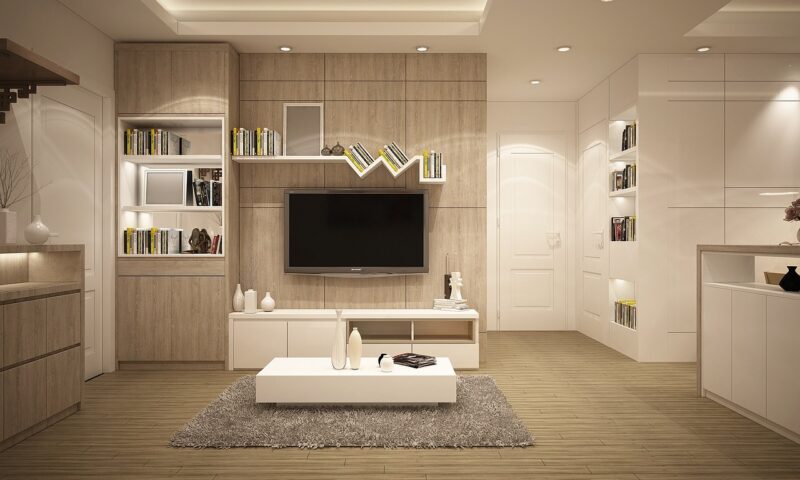
In today’s fast-paced world, we are often bombarded by endless distractions, commitments, and the clutter that comes with modern living. From overflowing closets to chaotic schedules, physical and mental clutter can take a toll on our well-being. Decluttering isn’t just about organizing your physical space; it’s also about creating mental clarity and simplifying your mindset. This comprehensive guide aims to guide you through the process of decluttering both your environment and your mind for a more peaceful and purposeful life.
1. Understanding the Importance of Decluttering
Before we get into the nitty-gritty of decluttering, it’s essential to understand why it matters. Decluttering has both psychological and practical benefits that can drastically enhance your quality of life. Here are a few reasons why you should consider integrating decluttering into your routine:
- Reduced Stress: Clutter can create a sense of overwhelm. When your environment is organized, your mind will feel calmer and more focused, reducing stress levels significantly.
- Increased Productivity: An organized space fosters increased productivity. When you know where everything is, you can work more efficiently and effectively.
- Enhanced Creativity: Clearing out the clutter opens up mental space that allows your creativity to flow, enhancing your ability to think outside the box.
- Improved Time Management: With less physical clutter, you spend less time searching for items, allowing you to allocate your time more efficiently.
- Cultivation of Mindfulness: Decluttering tasks often involve reflection, which cultivates a sense of mindfulness as you reassess your belongings and priorities.
Understanding these benefits sets the stage for a transformative process. Let’s dive into how to go about decluttering your life.
2. Decluttering Your Physical Space
The physical space you occupy significantly influences your mental state. A clean, well-organized environment can create a positive and relaxing atmosphere. Here’s how to tackle the decluttering process systematically:
Step 1: Start Small
Begin by decluttering a small space such as a drawer or a corner of a room. Doing so prevents feelings of being overwhelmed and helps you build momentum.
Step 2: Use the Four-Box Method
As you go through your belongings, have four boxes labeled: “Keep,” “Donate,” “Trash,” and “Storage.” This method allows you to categorize items easily as you declutter.
Step 3: Evaluate Each Item
Ask yourself a series of questions for each item:
- Have I used this in the past year? If not, consider letting it go.
- Does this item have sentimental value? If so, limit the number of sentimental items to avoid excess clutter.
- Is this item replaceable easily? If yes, consider whether you really need it.
Step 4: Organize What You Keep
Once you have sorted through your belongings, organize the items you decide to keep in a way that makes them accessible and easy to find. Use storage boxes, baskets, and labels where necessary.
Step 5: Regularly Review Your Space
Implement a routine of reviewing your space every few months to prevent clutter from accumulating again. A minimalist mindset will help reinforce your decluttering efforts.
3. Embracing a Minimalist Mindset
Decluttering is not just a one-time task; it’s a lifestyle change that requires embracing minimalism. Here are some strategies to cultivate a minimalist mindset:
Define What Matters Most
Identify your values and set goals based on what truly brings you joy. This will help you make informed decisions about what to keep and what to let go of. Focus on experiences rather than possessions.
Practice Gratitude
Gratitude can shift your focus from what you lack to what you have. Regularly practice gratitude by journaling or expressing appreciation for the items and experiences that bring you happiness in your life.
Limit New Acquisitions
Before bringing new items into your space, ask yourself if they genuinely add value to your life. Adopt a rule, like waiting 30 days before purchasing non-essential items, to reduce impulse buying and unnecessary clutter.
Stay Mindful with Digital Clutter
Physical decluttering is essential, but digital clutter is often overlooked. Regularly unsubscribe from emails, delete unused apps, and organize digital files to maintain a minimalistic digital space.
4. Decluttering Your Mind
Just as it’s crucial to declutter your physical space, mental decluttering is a vital part of simplifying your life. Here are some effective techniques:
Practice Mindfulness Meditation
Mindfulness meditation techniques can significantly enhance your mental clarity. Spend a few minutes each day focusing on your breath and letting go of distracting thoughts. This practice can help reduce anxiety and improve focus.
Journal Your Thoughts
Writing down your thoughts allows you to process emotions and declutter your mind. Regular journaling helps you organize your feelings, identify recurring thoughts, and promote self-reflection.
Streamline Your Tasks
Create a simplified daily or weekly to-do list. Focus on essential tasks and use tools such as the Eisenhower Matrix to prioritize effectively while setting clearer boundaries with your time.
Limit Information Consumption
In an age of information overload, it’s vital to limit your consumption. Unfollow social media accounts that do not add value, curate your news sources, and create a more balanced information diet to reduce mental clutter.
5. Maintaining Your Decluttered Life
Once you’ve decluttered your life and simplified your mindset, maintaining that state requires continuous effort. Here are actionable tips:
- Establish Daily Routines: Create habits such as a daily tidy-up for keeping your space organized. Schedule a regular decluttering session each month to catch any accumulation of clutter early on.
- Embrace a Minimalist Lifestyle: Continue to align your life choices with your values and prioritize experiences over material possessions. This doesn’t imply denying yourself joy; it means finding happiness in less.
- Reflect and Adapt: Regularly assess what is working and what isn’t. Life changes, and it’s essential to adapt your decluttering strategies accordingly to avoid relapses into cluttered chaos.
Conclusion
Decluttering your life and simplifying your mindset is not merely a chore; it represents a transformative journey toward a more intentional existence. By understanding the importance of decluttering, implementing physical organization strategies, cultivating a minimalist mindset, and addressing mental clutter, you can create a serene and focused life that enhances your well-being.
Start small—take the first step today. As you progress, remember that the goal is not perfection but progress; embrace the journey toward a clutter-free life. With commitment and practice, you’ll pave the way to a simpler, happier mindset and, ultimately, a more fulfilling life.








